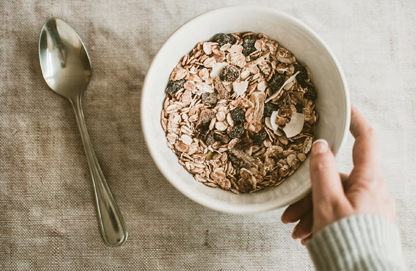Therapeutic Diet - Best Dietitian for Diabetes
Therapeutic Diet Solutions by the Best Dietitian in Delhi
Maintaining optimal health requires a balanced diet tailored to individual needs, especially when managing specific medical conditions. Dr. Neha Agarwal, recognized as the best dietitian in Delhi, offers specialized therapeutic diets to address conditions like diabetes, hypertension, hypothyroidism, PCOD, CKD, fatty liver, and more. As a trusted diet consultant in West Delhi, she creates customized plans to improve health and well-being.
Diet for Dyslipidemia and Heart Diseases
Dyslipidemia, characterized by abnormal blood lipid levels, poses serious risks like angina, myocardial infarction, and stroke. A therapeutic diet focuses on:
- Reducing total cholesterol and triglycerides.
- Increasing HDL (good cholesterol).
- Incorporating fiber-rich foods to lower blood cholesterol.
A low-fat, heart-friendly diet designed by the best dietitian nutritionist in Delhi ensures healthier arteries and reduced heart disease risk.
Diet for Hypertension (High Blood Pressure)
Hypertension, often linked to excessive salt intake, obesity, and stress, increases the risk of heart disease. Dr. Neha Agarwal emphasizes:
- Reducing salt and saturated fats.
- Increasing potassium-rich foods.
- Encouraging regular physical activity.
By following her guidance, patients experience improved blood pressure control and overall cardiovascular health.
Diet for Hypothyroidism
Hypothyroidism slows metabolism, causing weight gain and fatigue. Dr. Agarwal’s therapeutic diets include:
- Foods that boost metabolism and balance thyroid hormones.
- Avoidance of goitrogens that interfere with thyroid function.
- A balanced plan to address weight gain and fatigue effectively.
Diet for Gout (Elevated Uric Acid)
Gout, resulting from high purine intake, requires dietary changes to reduce uric acid levels. Dr. Neha Agarwal is one of the best dietitians for Diabetes in Delhi NCR, advises:
- Eliminating purine-rich foods.
- Encouraging hydration and weight management.
Her personalized plans help maintain healthy uric acid levels and prevent painful flare-ups.
Diet for Diabetes Management
Diabetes management is 50% dependent on diet and lifestyle. As the best dietitian in Delhi for diabetes, Dr. Agarwal offers:
- Customized carbohydrate distribution.
- High-fiber, nutrient-dense meals.
- Education on portion control and meal timing.
This approach ensures stable blood sugar levels, preventing long-term complications.
Diet for Constipation and Digestive Health
Constipation is a common issue caused by low fiber intake and dehydration. Dr. Neha Agarwal recommends:
- High-fiber foods like fruits, vegetables, and whole grains.
- Increased water consumption.
- Avoid processed foods.
These changes promote regular bowel movements and improved digestive health.
Diet for PCOD/PCOS
Polycystic Ovarian Syndrome affects 5-7.5% of women and is often linked to obesity. Dr. Agarwal’s therapeutic diet plans:
- Focus on weight loss to reduce insulin resistance.
- Include anti-inflammatory foods.
- Address hormonal imbalances for improved fertility and reduced diabetes risk.
Diet for Weight Gain
- Helps in filling the nutritional gaps, which helps to improve overall health and reduce fatigue levels.
- Weight gain with a proper, balanced diet improves skin, hair and reduces hormonal imbalance.
Diet for Childhood Obesity, Child Nutritional Disorders
- Children are provided with age-specific, interesting diet to reduce weight and at the same time fulfill their nutritional needs.
- Also, weaning diets are provided
Diet for Muscle Building, Increasing Endurance
- Diet customised for gym lovers with high protein requirements and muscle building is prepared as per their training schedule.
Additional Benefits of Choosing the Best Dietitian in Delhi
Dr. Neha Agarwal’s expertise extends to other areas, such as:
- Weight gain diets for underweight individuals.
- Post-surgery nutrition.
- Plans for liver, kidney, and bone health.
Her reputation as a famous weight loss nutritionist in Delhi and a child nutrition doctor in Delhi ensures comprehensive care for all age groups.
FAQs about the Best Dietitian in Delhi
- How does the best dietitian in Delhi manage diabetes?
Dr. Agarwal uses tailored therapeutic diets focusing on carbohydrate control and blood sugar stabilization.
- Can a dietitian help with PCOS?
Yes, Dr. Agarwal specializes in managing PCOS through weight loss and hormone-balancing diets.
- What are the benefits of consulting the best dietitian in Delhi?
Improved health, weight management, and condition-specific therapeutic diets.
- Is Dr. Neha Agarwal a child nutrition doctor in Delhi?
Yes, she offers expert nutrition guidance for children and teens.
- Can a dietitian help with digestive disorders?
Absolutely! Dr. Agarwal’s high-fiber, customized diets address constipation, diarrhea, and more.
- Where is Dr. Neha Agarwal located?
She practices as a diet consultant in West Delhi, offering both in-person and virtual consultations.
- What makes Dr. Neha Agarwal the best dietitian in Delhi?
Her expertise in therapeutic diets, personalized care, and proven results makes her stand out.

